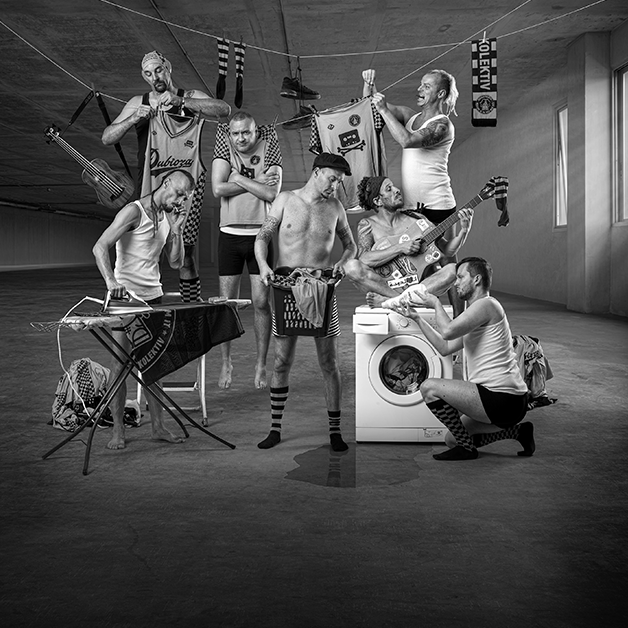Dubioza Kolektiv

In the picturesque Bosnia and Herzegovina, in 2003, a group of friends embarked on a musical journey that would transcend borders and challenge conventions. This story begins in a time of cultural and economic upheaval, when the band Dubioza Kolektiv emerged, not only as a musical ensemble but as a cultural force, imbued with the spirit of rebellion and innovation. In the absence of a developed music industry and limited pathways for cultural and political expression, Dubioza Kolektiv rose as a beacon of change. Drawing inspiration from various musical genres such as ska, punk, reggae, electronic, and hip-hop, they created a sound that defied categorization, reflecting the eclectic influences of their global perspective.
From their inception, Dubioza Kolektiv set out to challenge the status quo, fearlessly addressing taboo topics and demanding that their voice be heard. Their debut album titled “Dubioza Kolektiv,” released in 2004, ignited a fervor within the Bosnian music scene reminiscent of pre-war times, signaling the arrival of a new musical phenomenon. Subsequent albums like “Open Wide” and “Dubnamite” further solidified their reputation, propelling them beyond national borders and onto the international stage. By 2008, with the bold release of the album “Firma Ilegal,” the band’s unwavering fight against the nationalist establishment echoed across the Balkans, bringing them widespread acclaim and recognition. Unfazed by the constraints of traditional music distribution, Dubioza Kolektiv embraced digital platforms, offering their fourth album “5 do12” for free on their website—a defiant gesture against the commercialization of art.
As evidence of their global appeal, Dubioza Kolektiv caught the attention of Bill Gould from Faith No More, leading to a collaboration with the Koolarrow Records label and international distribution. With albums like “Wild, Wild East” and “Apsurdistan,” they captured the imagination of audiences far beyond their Balkan roots, garnering hundreds of thousands of downloads and selling out tours across Europe. Their latest offering, “Happy Machine,” released in 2016, continues the tradition of fearless commentary on contemporary issues. Inspired by events such as the protests in Gezi Park in Istanbul and Europe’s response to the Syrian refugee crisis, the album demonstrates Dubioza Kolektiv’s unwavering commitment to social activism and musical innovation. Collaborations with renowned artists like Manu Chao, Benji Webbe, and Roy Paci further emphasize their global reach and influence.
As they traverse the ever-changing landscape of the music industry, Dubioza Kolektiv remains a symbol of resilience and creativity, transcending boundaries and challenging conventions with each new release.
